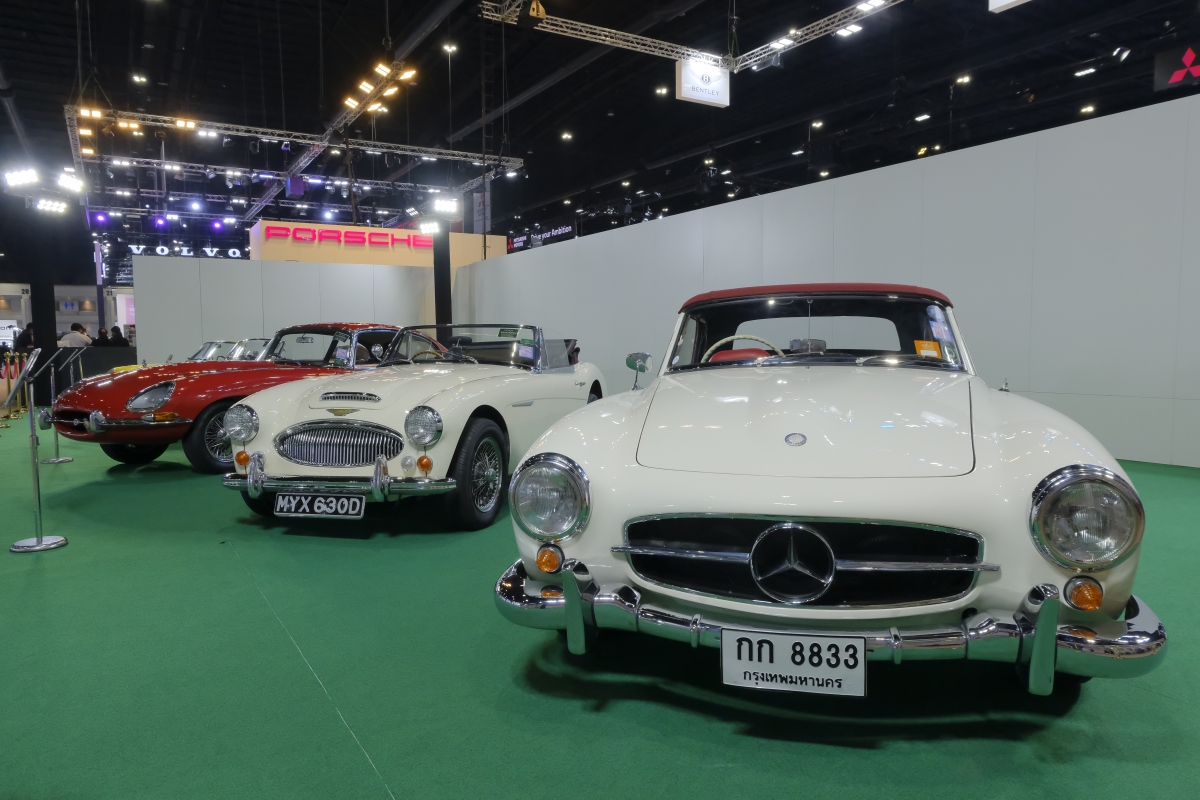Auto manufacturers unveiled their latest electric vehicle (EV) models at the Bangkok International Motor Show this week, hoping to cash in on a government target of 1 million EVs on Thai roads by 2025.
We climbed into the driving seat at Impact Muang Thong Thani to check out the new technology powering Thailand’s transition from combustion engines to more sustainable electric vehicles.
The first brand we visited was Audi, which was proudly displaying its flagship EV model, the RS e-tron GT.Audi Thailand managing director Wallop Chalermvongsavej explained that this electric sports car boasts 645 horsepower and a top speed of 246 kilometres per hour (153mph).
Audi launched the RS e-tron GT in Thailand by displaying one of the first eight cars to roll off the production line, evidence of the German carmaker’s confidence in the Kingdom’s growing market for electric vehicles.
Wallop said the company is now focusing hard on the EV market. EVs accounted for around 7 per cent of total Audi sales in Thailand last year and the brand expects to at least match that figure in 2021.

Over at the Porsche stand, there was a similar tale of recovery after Covid-19.
Area sales manager Aritat Chalermpongs said Thai consumers had shown strong interest last year in Porsche’s Taycan EV (560hp, top speed 260kph).
However, the production quota for Thailand had to be cut when the Covid-19 crisis hit car sales. But as the crisis faded, interest and bookings quickly surged back, and Porsche Thailand had to contact factories in a bid to meet demand.
In 2021, the brand aims to deliver 1,300 cars to Thai customers who have booked Porsches.
Around 15-20 per cent will be Taycan models.Aritat said Porsche will continue to improve its various models as more EVs gradually emerge in the market.
Meanwhile previous models of the Taycan had maintained their high quality, so consumers need not be worried about the performance of EVs, he said.
In addition to price and performance, a crucial factor influencing demand for EVs is the number of charging stations in Thailand.
That was the message at the MG stand. The carmaker told us it had sold over 1,000 EVs in Thailand in the last year, including 800 of its MG ZS EV and MG EP models.
MG said growth of the EV market depends on three factors – producers, government and charging stations. MG helped take care of the last factor by installing over 100 charging stations in Thailand in the last year. About 20 of these are now operating around the clock.
MG aims to complete its charging network this year so that EV drivers won’t have to worry about running out of battery on long journeys.
On Wednesday, the National Electric Vehicle (EV) Policy Committee under the Energy Ministry set a target of at least 1,055,000 electric vehicles on Thai roads by 2025.
The target comprises 402,000 cars and pickups, 622,000 motorcycles and 31,000 buses and trucks.“
By 2035, this number should reach 15,580,000 vehicles, or 6,400,000 cars/pickup trucks, 8,750,000 motorcycles and 430,000 buses/trucks,” said Energy Minister Supattanapong Punmeechaow.
Last week, Kasikorn Research Centre forecast sales of 4,000-5,000 battery electric vehicles (BEVs) this year, an increase of 210-288 per cent.
The Bangkok International Motor Show runs until April 4 at Impact Muang Thong Thani.
bkk




